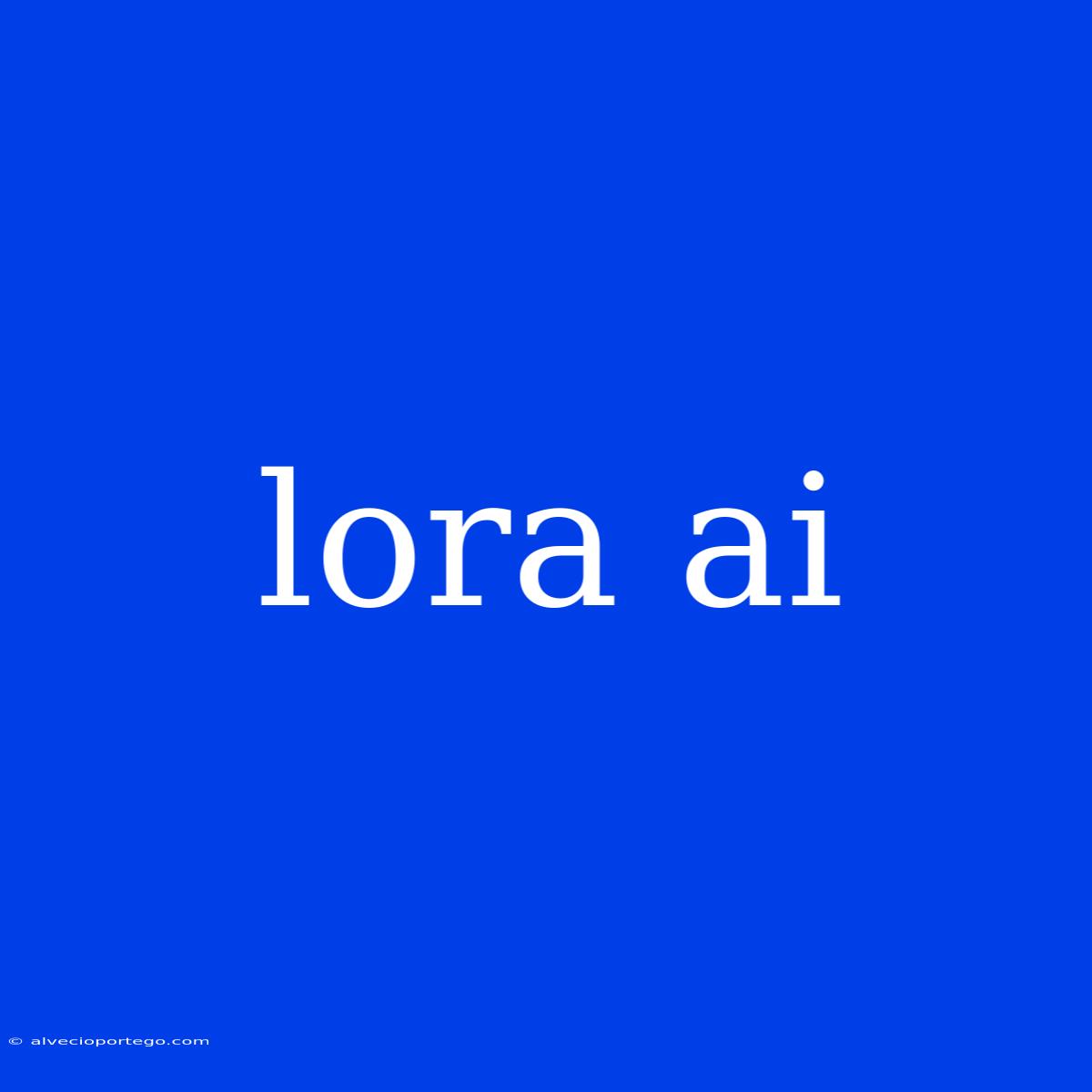Lora AI: Demystifying the Power of Tiny AI Models
Lora AI, or Low-Rank Adaptation of Large Language Models, is a revolutionary technique that empowers users to fine-tune large language models (LLMs) with minimal computational resources and data. This innovation, pioneered by researchers at Microsoft, offers a game-changing approach to adapting these powerful AI models for specific tasks and domains.
The Benefits of Lora AI:
- Reduced Training Costs: Lora AI requires significantly less computational power and data compared to traditional fine-tuning methods. This makes it accessible to individuals and organizations with limited resources.
- Faster Training Times: Lora AI models train much faster than traditional fine-tuned models, allowing for rapid deployment and experimentation.
- Improved Performance: Lora AI often surpasses traditional fine-tuning in terms of accuracy and performance, especially when dealing with limited data sets.
- Preservation of Original Model: Lora AI doesn't alter the original LLM's weights, ensuring its functionality and integrity. Instead, it introduces a small, task-specific "adapter" that modifies the model's behavior.
How Lora AI Works:
- Freezing the Original LLM: The original LLM's parameters are frozen, preventing changes during training.
- Introducing Lora Adapters: Small, low-rank matrices called "Lora adapters" are introduced to the LLM's architecture.
- Training the Lora Adapters: Only the Lora adapters are trained on the task-specific data, while the original LLM remains untouched.
- Applying the Adapters: After training, the Lora adapters are applied to the LLM, modifying its behavior for the desired task.
Applications of Lora AI:
The versatility of Lora AI makes it applicable to a wide range of applications, including:
- Natural Language Processing (NLP):
- Text Summarization: Adapting LLMs for generating concise summaries of lengthy documents.
- Machine Translation: Fine-tuning models for specific language pairs or specialized domains.
- Sentiment Analysis: Adapting models to accurately detect and classify sentiment in text.
- Computer Vision:
- Image Classification: Training models for specific object recognition tasks.
- Image Captioning: Adapting LLMs to generate descriptive captions for images.
- Other Domains:
- Code Generation: Fine-tuning models to generate high-quality code in specific programming languages.
- Audio Generation: Adapting models for tasks such as speech synthesis or music generation.
Lora AI: The Future of AI Customization
Lora AI represents a significant advancement in the field of artificial intelligence, empowering researchers, developers, and individuals to tailor LLMs to their specific needs. Its accessibility, efficiency, and effectiveness make it an invaluable tool for a diverse range of applications. As Lora AI technology continues to evolve, it promises to unlock even greater potential for AI customization and democratize the use of powerful AI models.

